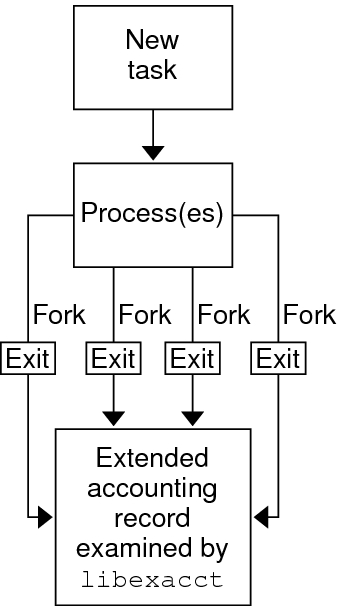How Extended Accounting Works
The extended accounting facility in the Oracle Solaris operating system uses a versioned, extensible file format to contain accounting data. Files that use this data format can be accessed or be created by using the API provided in the included library, libexacct (see libexacct(3LIB)). These files can then be analyzed on any platform with extended accounting enabled, and their data can be used for capacity planning and chargeback.
If extended accounting is active, statistics are gathered that can be examined by the libexacct API. libexacct allows examination of the exacct files either forward or backward. The API supports third-party files that are generated by libexacct as well as those files that are created by the kernel. There is a Practical Extraction and Report Language (Perl) interface to libexacct that enables you to develop customized reporting and extraction scripts. See Perl Interface to libexacct.
For example, with extended accounting enabled, the task tracks the aggregate resource usage of its member processes. A task accounting record is written at task completion. Interim records on running processes and tasks can also be written. For more information on tasks, see Chapter 2, About Projects and Tasks.
Figure 4-1 Task Tracking With Extended Accounting Activated
